Posts Tagged ‘“personal injury”’
Toyota, GM and Mazda Make New Headlines for Safety Recalls
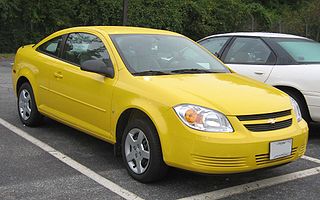 Toyota issues its second largest safety recall ever while GM CEO addresses Congress and Mazda reports a new web of problems
Toyota issues its second largest safety recall ever while GM CEO addresses Congress and Mazda reports a new web of problems
Toyota has more bad news for drivers. Just a few weeks ago, Toyota agreed to pay a record $1.2 billion criminal penalty to the federal government. The Japanese automaker, which has recalled over 9 million vehicles worldwide in recent years, recalled another 6.4 million vehicles on Wednesday for steering, airbag and other safety defects. This is the company’s second largest single recall announcement. Toyota states that it is not aware of any crashes or injuries involving these defects.
In March, Toyota agreed to pay the $1.2 billion criminal penalty to federal government for misleading consumers and the government about unintended acceleration in its cars and trucks. The Justice Department had charged Toyota with wire fraud, but agreed to defer the criminal charge for three years while the company submits to government monitoring.
This week’s recalls involve 27 Toyota models, including the RAV4 and Yaris. The largest recall involves 3.5 million vehicles which have defective spiral cables that can be damaged when the steering wheel is turned. Other defects involve a seat rail that can be pushed forward in a crash, as well as faulty steering column brackets, windshield wiper motors and engine starters.
GM ignition defects draw Congressional inquiry. Last week, General Motors CEO Mary Barra was questioned by Congress about faulty ignition switches in GM vehicles, and about her company’s slow response to protecting the public after learning about at least 13 deaths linked to the defect. GM has recalled over 2.5 million vehicles which may be equipped with the faulty ignition switch.
A week later, the National Highway Traffic Safety Administration (NHTSA) is waiting on more answers from General Motors. It reports the company has failed to respond to more than a third of its written questions. The company is being fined $7,000 each day for failing to fully respond, and the NHTSA is expected to hand the matter over to the Justice Department shortly.
Spiders and hoses and gas, oh my! Mazda also issued a recall this week, one involving an unusual, but familiar safety problem. For the second time in three years, Mazda has recalled 42,000 Mazda6 sedans. This recall involved vehicles from 2010, 2011 and 2012.
The problem is the yellow sac spider. The spiders are attracted to the smell of gasoline and can weave a web in the evaporative fuel hose, causing pressure to build up in the fuel tank. Too much pressure can cause fuel tank cracks, leaks and fires.
In 2011, Mazda had recalled 65,000 Mazda6s from 2009 and 2010 for this defect. The car manufacturer attempted to remedy the defect by installing a spring inside the vehicle’s fuel line, but recently reported nine cases in which this was not adequate. The company is not aware of any fires due to the defect, but will now notify car owners. The remedy requires checking of the evaporative canister vent line and software reprogramming.
Read More
Attorney David White Discusses Product Recalls on Fox 25 TV
Last weekend, two young children in Franklin tragically died after getting trapped in a defective wooden hope chest during a game of hide and seek. The chest was one of 12 million manufactured by the Lane furniture company of Virginia between 1912 and 1987.
Attorney David White from the Boston product liability firm, Breakstone, White & Gluck, commented on ways consumers can avoid injuries from defective products, including second-hand goods.
According to reports, the Franklin children were probably playing a game when they got into the chest and the lid closed. The lid automatically latched shut when closed and could not be opened from the inside. When the family purchased the second-hand chest 15 years ago, they had no warning of the defect or the fact that the product had been recalled.
Boston News, Weather, Sports | FOX 25 | MyFoxBoston
The chests were recognized as defective after four children were trapped in them and died prior to 1996, leading to a product recall 1997. In 2001, Lane paid a $900,000 civil penalty to the Consumer Product Safety Commission (CPSC) to settle claims that it had provided late notice of the deaths to those four children.
Even after the recall, probably six million of the chests still have the defective locks. Although there have been sporadic efforts to notify the public of this widespread and serious hazard, it is not clear how aggressively Lane has tried to make sure the defective latches are either removed or replaced.
White, a Boston attorney who specializes in injury and liability cases, said companies have a responsibility to inform clients of recalls and stores have a responsibility not to sell recalled products, but sometimes consumers still do not receive notice, including in cases involving products purchased in second-hand stores. He said defective products are causing injury.
White told Fox 25 that the problem is no one registers a hope chest with a company as they would an electronic product such as a new television. His safety tips:
1) Consumers can learn what hazard signs to look for in products and remove unsafe products on their own, even if they have not been recalled.
2) A few products to watch carefully:
- Cribs, car seats, bassinets, strollers and other products which hold babies.
- Products with small pieces that break off.
- Novelty toys with magnets which children can easily swallow. These have been recalled.
3) Consumers can check the CPSC website for recalls.
4) Read age-appropriate labels on toys. Your younger children may not be old enough to play with their older siblings’ toys.
Read More
Are You Ready for Winter Driving?
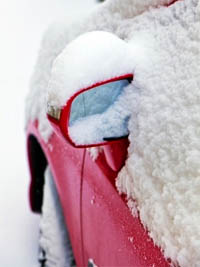 Winter is almost here! We have already seen the first snow flurries in Massachusetts, and it is time for drivers to get prepared for winter driving.
Winter is almost here! We have already seen the first snow flurries in Massachusetts, and it is time for drivers to get prepared for winter driving.
Each year, over 1,300 people are killed and more than 116,800 people are injured in car crashes on snowy, slushy or icy pavement, according to the U.S. Department of Transportation. During snowfall, nearly 900 people are killed in accidents and 76,000 are injured.
Stay safe on the roads this winter. Our Boston car accident lawyers share these tips:
Slow Down! Reduce your speed. When it snows, if you are traveling the speed limit, you are probably traveling too fast for road conditions and are at risk for causing a car accident.
Leave Extra Distance. It takes longer to stop on snowy and icy roads. Increase your following speed to 10 seconds.
Clear Snow and Ice. Make sure your car and windows, including your headlights and turn signals, are free from all snow and ice when you drive.
Gas. Keep your gas tank at least half-full throughout the winter.You will be prepared in case of a serious storm, and you can make sure your gas lines do not freeze up.
Check Your Tires. Inspect your tire tread to make sure your tires are ready for winter. Also, check your tire pressure once a month in the winter.
Exhaust. Keep your exhaust pipe clear of snow.
Practice After the First Snow Storm. On the first icy, snowy day, find a big parking lot that is empty and practicing your skills for handling skids.Teach the new drivers in your home to control a skid the first chance you get.
Highways. If the roads are still being cleared, travel in the lane which has most recently been plowed and avoid changing lanes.
No Cruise Control. Do not use cruise control on slippery roads.
Pedestrians. Remember you may not be able to see pedestrians around snow banks. Reduce your speed and take an extra minute to check for them at intersections.
Check Your Auto Insurance. Check your auto insurance policy. Many people do not have enough insurance to pay their medical bills if they were injured on the road. A few important coverage types to ask your agent about: Underinsured, Uninsured and Medical Payments coverages. Read our attorneys’ article.
Read More
Our Thanksgiving Wishes
 The lawyers and staff at Breakstone, White & Gluck wish you a very Happy Thanksgiving. We hope you enjoy this special time with family over a tasty meal (with plenty of leftovers!). We also appeal to you to take a few steps for safety’s sake:
The lawyers and staff at Breakstone, White & Gluck wish you a very Happy Thanksgiving. We hope you enjoy this special time with family over a tasty meal (with plenty of leftovers!). We also appeal to you to take a few steps for safety’s sake:
Drive Safely. AAA projects nearly 39 million U.S. travelers will drive 50 miles or more from home this Thanksgiving holiday weekend. If you can, avoid traveling during busy times such as Thanksgiving Eve. No matter when you drive, make sure you pay attention, monitor traffic reports, never drive when you are drowsy and start your trip with a full tank of gas.
Distraction-Free Driving. Commit to not use your cell phone while driving, especially in traffic congestion. Do not make phone calls or text while driving, the latter of which is against the law in Massachusetts. If you are using your cell phone as a GPS, have someone in the passenger seat handle your phone.
Smoke Alarm Batteries. Change your smoke alarm batteries, if you did not do so in early November, when Daylight Saving Time ended. About two-thirds of home fire deaths occur in homes with no smoke alarms or working smoke alarms, according to the Consumer Product Safety Commission (CPSC). You should test the batteries in all your home’s smoke alarms monthly.
Cooking Fires. The threat of a cooking fire triples on Thanksgiving, according to the CPSC. Stay in the kitchen while frying, grilling or broiling food. If you have to step away, turn off the stove.
Prevent Food Poisoning. A few reminders are regularly wash your hands in the kitchen, along with food surfaces and utensils. Separate raw meat and poultry from other food. Cook your turkey to a safe minimum internal temperature of 165 degrees. The Centers for Disease Control and Prevention also recommends cooking your stuffing in a separate dish outside the turkey. As for leftovers, make sure to eat within three or four days.
Keep Children Away From Food. Keep young children out of the kitchen while cooking. They could spill hot liquids or scald their skin on the oven.
Look for Hazards to Children. If you are at an unfamiliar home, do a visual scan of potential dangers for children. Keep them away from brick fireplaces, garage entrances and other hazards which could cause them injury.
Turkey Fryers. The National Fire Protection Association discourages use of turkey fryers. But if you use one, make sure you take it outside, a good distance from your home or any structure. Do not cook on the roof of apartment or condominium buildings. Dress so you are prepared to deal with hot oil spills and never leave the fryer unattended.
No Drinking and Driving. Do not drive after consuming alcohol. You risk seriously injuring yourself or someone else in a car accident. You could also be criminally charged.
This message is especially important on Thanksgiving. Mothers Against Drunk Driving (MADD) reports drunk driving deaths continue to increase during the holiday season. Many accidents occur on Thanksgiving Eve – a day it calls Blackout Wednesday – and the early hours of Thanksgiving Day. In 2010 alone, 174 people in the U.S. were killed during the Thanksgiving holiday weekend, in addition to many others who were injured.
Related:
14 Things to Know About Traveling on Thanksgiving Weekend in Massachusetts, North Reading Patch.
Boston Traffic Reports, Boston.com.
It’s Turkey Time: Safely Prepare Your Holiday Meal, Centers for Disease Control and Prevention.
Thanksgiving Home & Travel Safety Tips, Mass.gov.
Read More
Attorney Marc Breakstone Comments in Massachusetts Lawyers Weekly Article: “Too Much Information? Lawyers Split Over Online Juror Surveillance”
 Massachusetts Lawyers Weekly writes this week about the divide among lawyers on monitoring social media use and Internet activities by jurors. It is a common practice, especially in Massachusetts, which does not allow attorney-conducted voir dire. There have been no ethical opinions on the subject issued in Massachusetts. Not all attorneys are comfortable with it, but some consider it fair.
Massachusetts Lawyers Weekly writes this week about the divide among lawyers on monitoring social media use and Internet activities by jurors. It is a common practice, especially in Massachusetts, which does not allow attorney-conducted voir dire. There have been no ethical opinions on the subject issued in Massachusetts. Not all attorneys are comfortable with it, but some consider it fair.
“I see no ethical issue. It’s in the public domain,” says Marc L. Breakstone, a Boston personal injury and medical malpractice lawyer with over 25 years of experience. “The public domain is the public domain. There’s certainly nothing wrong with checking the Internet. There would be a lot wrong with interacting with jurors or doing anything on the Internet to influence jurors with respect to the case.”
Breakstone later adds, “Trial lawyers are starving for information about jurors. The Internet is a potential treasure trove of information. Why wouldn’t a diligent trial lawyer inquire of that source? I would rather have voir dire, but without voir dire, this is all I can do.”
Read the full article online or view the PDF version.
Toys Recalled in Summer 2013 Pose Choking Hazard, Injury Risks
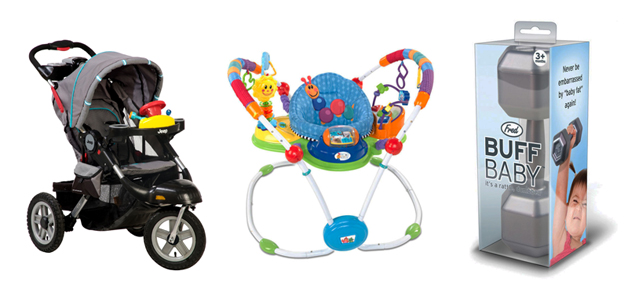
If you have young children, you have probably logged a few hours watching them play this summer. This joy of parenthood comes with an important responsibility: to make sure their toys are safe.
In the United States, the Consumer Product Safety Commission (CPSC) regulates the toy industry. Toys for children 12 and under are required to pass third-party testing and certification, but each year, defective toys still make it to store shelves and cause serious injuries and deaths. In 2011, more than 260,000 children were treated for toy-related injuries in the hospital emergency room and 13 were killed, according to the CPSC.
If you are a parent, be vigilant. Start by inspecting your children’s toys every time they play. Check the age labeling. Make sure they are no small parts that pose a choking hazard. When in doubt, set the toy aside and have your children play with something else.
Another way to protect your children is to stay informed. You may not see every toy recall on the TV news, but can visit the CPSC website and social media sites for news on toy recalls. A few recalls from this summer include:
Baby Einstein Musical Motion Activity Jumpers
Kids II voluntarily recalled about 400,000 Baby Einstein Musical Motion Activity Jumpers earlier this month. Another 8,500 activity seats have been recalled in Canada. The toy is linked to 61 injuries.
The hazard is when infants reach out and play with one of the attached toys (the toy with the smiley face), it rebounds back.
Kids II received 100 incident reports, including the 61 injuries. Injuries included bruises, facial lacerations and a 7-month-old boy who sustained a lineal skull fracture. In one case, an adult suffered a chipped tooth.
Kids II, which is based in Atlanta, Georgia, is the product importer. The toy was manufactured in China prior to November 2011. Kids II will replace the defective part for consumers for free. Many models were sold at Target, Toys R Us and Amazon.com between May 2010 and May 2013. Recall notice.
Kolcraft Jeep Liberty Strollers Kolcraft recalled 96,000 strollers in the United States after 39 reports of defective wheels. The inner tube can rupture, causing the wheel rim to fracture and fly off as a projectile. The reports included 18 injuries, most of which occurred when an adult attempted to fill a tire with air. Children and adults reported suffering lacerations, abrasions and contusions.
The stroller was manufactured in China. Kolcraft Enterprises, Inc. of Chicago, Illinois was the product importer. It was sold at Burlington Coat Factory, Sears and Toys R Us and other retailers from June 2010 to June 2013 for between $150 and $180.
Consumers are advised to stop using the defective stroller and contact Kolcraft for free replacement wheels. Recall notice.
“Buff Baby” Baby Rattles
In June, Fred & Friends announced the voluntary recall of 47,500 “Buff Baby” baby rattles in the United States. The rattles, which are designed to look like a dumbbell weight, are designed for children 3 months and older. The rattles were recalled because they pose a choking hazard to young users. The cap can separate and expose the plastic pellets inside to infants. Fred & Friends received two reports of this happening, but no injuries.
The rattles were sold in specialty toy and baby stores nationwide and in Canada, as well as online through Amazon.com and other websites from October 2011 through June 2013.
Consumers are advised to stop using the rattles and contact Fred & Friends for a full refund. Fred & Friends, which is located in Cumberland, Rhode Island, is the distributor. The toy was manufactured in China. Recall notice.
Thermobaby Bath Seats Recalled Due to Drowning Hazard
The Aquababy Bath Ring was recalled after the CPSC determined it does not meet federal safety standards. The product is supposed to hold children secure in the bath, but the design poses a risk for tipping over.
SCS Direct Inc. of Milford, Conn. voluntarily recalled 7,500 of the bath seats. There were no injuries involved in this recall. The seats were designed for children five months to ten months old. It was sold through Amazon.com. Consumers are advised to stop using the product and contact SCS Direct for a $35 refund. Recall notice.
Read More
Massachusetts Boating Accidents Increased in 2012
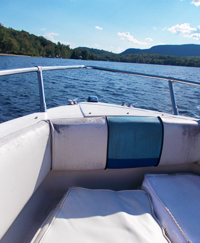
For Massachusetts boaters, a day on the water resulted in more injuries last year, according to state figures.
In 2012, Massachusetts saw 68 reported boating accidents, resulting in 17 deaths, according to the state Executive Office of Energy and Environmental Affairs. This was an increase from 2011, when there were 46 reported boating accidents and 9 deaths.
Nationally, there was a significant decrease in reported accidents. In 2012, 651 boating accidents were reported, down from 758 in 2011, according to the U.S. Coast Guard.
Massachusetts Environmental Police enforce the state’s boating laws and investigate recreational boat accidents on coastal and inland waters, except private lakes and ponds and those smaller than 10 acres. If you are in a boating accident involving personal injury, death or property damage over $500, you are required to report it.
Our Boston injury attorneys offer these safety tips for boating off Boston Harbor, Cape Cod or your favorite spot:
Wear life jackets. Many drownings and accidents result from failure to wear life jackets or not having appropriate life jackets onboard. In Massachusetts, children under 12 are required to wear life jackets on boats at all times and boats must have one life jacket on board for every passenger.
Life jackets are required for users of personal watercraft, such as Jet Skis.
Avoid alcohol. Avoid alcohol consumption while operating a boat. Alcohol use is involved in up to half of teen and adult deaths associated with water recreation, according to the Centers for Disease Control & Prevention.
Operating a boat under the influence is against the law in every state in the United States. In Massachusetts, the criminal punishment can include imprisonment, fines and a loss of motor vehicle license and boating registration for one year. If a boater causes serious bodily injury to another person, they may be imprisoned for up to 10 years and fined up to $5,000.
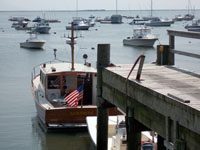
Training. The state’s Boat and Recreation Vehicle Safety Bureau offers training, which is mandatory for younger boaters but available to others as well.
Avoid swimming areas. In Massachusetts, boaters are prohibited from operating within 150 feet of shorelines used as swimming areas. You must stay more than 75 feet away from floats and markers that line designated swimming areas.
Beware of other boaters. Travel the permitted speed (generally 45 miles per hour on inland waters) and slow down as you approach other boaters. Your boat’s wake can cause another boat operator to lose control or injure the passengers.
Traveling with passengers. Do not exceed your boat’s passenger limit. Ask all your passengers to wear life jackets, especially young children. When you refuel your boat, ask your passengers to step off the boat. Make sure you have the right amount of food and water.
If you are traveling with children, explain the safe areas to sit, how to properly board the boat and what they cannot touch.
Aging or broken boat equipment. Before each season, have your boat checked for equipment failures. The Coast Guard offers free vessel checks or you ask your local boatyard. You can also check the government boat recall database.
Boating at night. It is best to boat during daylight, but if you go at night, make sure you have the proper navigation lights and limit your passengers so you can focus on operating the boat.
*********
Related:
State Environmental Officials Urge Residents to Follow Safe Boating Practices, Executive Office of Energy and Environmental Affairs.
Massachusetts Boating Law Summary, Executive Office of Energy and Environmental Affairs.
Trampolines, Inflatable Slides Among Dangers At Swimming Pool

Every year, thousands of people in the U.S. die in drownings. Many of these are young children who drown in swimming pools. Last summer alone, nearly 140 children under age 15 drowned in swimming pools and spa tubs, according to the Consumer Product Safety Commission (CPSC).
While the risk of personal injury and wrongful death from drowning has long been known, new dangers have emerged at pools in recent years. As many homeowners have removed diving boards for safety and insurance reasons, many others are purchasing inflatable slides, sports nets and trampolines to enjoy by the pool.
Two recent Massachusetts cases touch on these risks. Last month, the Supreme Judicial Court ordered a new trial in Dos Santos v. Coleta, where the plaintiff was paralyzed in 2005 when he jumped off a trampoline and struck his head in a two-foot inflatable wading pool. The pool and trampoline were owned by his half brother, the defendant.
The SJC found the trial court judge provided improper instructions when he said the jury could stop deliberating if they concluded the danger of jumping off a trampoline and into the pool was “open and obvious.”
The SJC ruled that the trial judge should have also instructed that a property owner is not relieved from correcting such dangers in cases where they can or should anticipate that the dangerous condition will cause harm.
“Because we conclude that a landowner has a duty to remedy an open and obvious danger, where he has created and maintained that danger with the knowledge that lawful entrants would (and did) choose to encounter it despite the obvious risk of doing so, we now reverse,” wrote Justice Cordy.
The plaintiff, Cleber Coleta Dos Santos, had been playing with his young son on the trampoline when he attempted to flip off and into the pool at his half brother’s Framingham home. He suffered permanent paralysis. His half brother and sister-in-law owned the home, but had moved out a few days prior, leaving the trampoline positioned next to the pool where it could be used in the backyard. The SJC noted that the homeowner disregarded warnings printed on the side of the pool against jumping or diving into the pool.
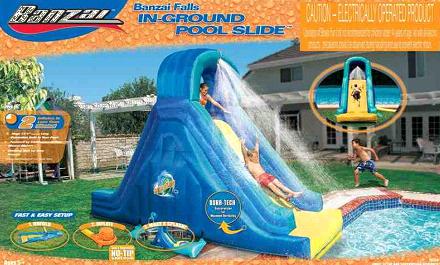
The Banzai inflatable slide is another product which has caused injury and death in Massachusetts in recent years.
You should not see any Banzai slides for in-ground pools this summer. They were recalled in May 2012, after a woman’s death in Massachusetts and two reports of serious injury in other states. The inflatable slides were designed to sit on the edge of a pool so swimmers can climb to the top and slide down as water sprays. But the structure easily deflated, removing support for the user. It was also easy to knock down, even without windy conditions.
In 2006, a 29-year-old Colorado mother visiting Massachusetts fractured her neck and struck her head while using a Banzai inflatable slide. When she stepped up and started to slide, there was not enough support and her head hit the pavement near the edge of the pool. The slide had been partially deflated. The woman died the next day at a Boston hospital.
In October 2011, a jury in Salem Superior Court ordered Toys R Us to pay more than $20 million to the woman’s family, finding the Banzai slide did not comply with federal safety standards for swimming pool slides. Toys R Us had sold the product to the victim. Amazon.com – the website where the product was sold through – and manufacturer SLB Toys USA settled with the woman’s family after the trial began.
In May 2012, Walmart and Toys R Us recalled 21,000 Banzai slides for in-ground pools, asking consumers to return the product for a full refund. Banzai continues to sell inflatable slides and water castles which are stand alone.
Toys R Us recently appealed the case to the Supreme Judicial Court, arguing the the Consumer Product Safety Commission regulation cited by the woman’s family does not apply to inflatable pool slides, but only to rigid pool slides.
Massachusetts Snow Storm Safety Tips
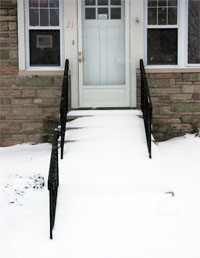 In a few hours, a historic snowstorm is forecast to begin, blanketing Boston with 18 inches in many areas and 24 to 32 inches in some regions. Gov. Deval Patrick has urged the public to stay home, and directed non-essential state employees not to report to work. Many schools and offices have closed in response. The MBTA will close at 3:30 this afternoon and may remain shut down through the weekend.
In a few hours, a historic snowstorm is forecast to begin, blanketing Boston with 18 inches in many areas and 24 to 32 inches in some regions. Gov. Deval Patrick has urged the public to stay home, and directed non-essential state employees not to report to work. Many schools and offices have closed in response. The MBTA will close at 3:30 this afternoon and may remain shut down through the weekend.
With a few more hours, here are some tips to prepare yourself:
Have a Plan to Stay in Contact. Whether you live at home with your family or in an apartment on your own, have a plan to communicate with your relatives, landlord and others. Gather phone numbers for snow plow companies, neighbors and local police and fire departments.
Check Your Community Website. Your city or town should post emergency information for residents to follow during the storm, including plans for clearing snow, snow storm accidents and emergency notifications.
Keep in Touch Electronically. Charge your cell phone now and monitor news on TV and the Internet. Another source of information is to dial 2-1-1, the state’s telephone information call center during times of emergency. You can also sign up for electronic alerts from the state on your phone by clicking here.
Social Media. If you are on Facebook, you can follow MEMA, the Massachusetts Emergency Management Agency by visiting its page. If you use Twitter, the hashtag for storm updates is #MAStorm.
Gas Up. The lines at the pump may be long, but if you can, fill your car with gasoline. This will give you a way to charge your cell phone if your home loses power.
Food and Supplies. Make sure you have enough food and supplies to pass the weekend, including bottled water and flashlights. Also make sure you have any medications you may need.
Power Loss. We may lose power so set your appliances and gather supplies accordingly. Set your refrigerator to the coldest setting and have a cooler ready, so you can keep it shut as much as possible during the storm. Food can stay cold in a full refrigerator for up to 24 hours and in a full-packed freezer for 48 hours. Have non-perishable food on hand as well, such as granola bars.
Turn Off TVs and Other Appliances. If we lose power, unplug sensitive electronic equipment such as TVs, microwave ovens and computers. These can cause irregularities when power is restored. Leave a light on so you know power is restored.
Plan for a Heating Loss. Gather blankets and seal off unused rooms by stuffing towels in the space under the doors. At night, cover windows with extra blankets and sheets. Make sure you regularly eat.
Freezing Pipes. If pipes freeze, remove insulation, turn on all faucets and pour hot water over the pipes. With caution, you can also use a hand-held hair dryer on the pipes.
Clearing Snow. Keep up with clearing snow as much as you can in the early hours of the storm and after the storm, follow directions from state and local officials for clearing it from areas such as sidewalks.
Clear Snow from Furnace Pipe. Throughout the storm, make sure your furnace exhaust vents remains clear of snow to avoid a build-up of carbon monoxide in your home. This is essential even when you cannot clear your driveway and other areas because it could result in poisoning.
Related:
Winter Power Outage Safety Tips, Massachusetts Emergency Management Agency.
Read More
Breakstone, White & Gluck Honored as Super Lawyers for Ninth Year
 Breakstone, White & Gluck announces its lawyers have been recognized as 2012 Super Lawyers. It is the ninth consecutive year the firm’s lawyers have been honored.
Breakstone, White & Gluck announces its lawyers have been recognized as 2012 Super Lawyers. It is the ninth consecutive year the firm’s lawyers have been honored.
Attorney Marc L. Breakstone
Attorney Breakstone has been recognized as one of the Top 100 New England Super Lawyers 2012, one of the Top 100 Massachusetts Super Lawyers 2012 and a Massachusetts Super Lawyer in the category of Personal Injury Plaintiff: Medical Malpractice. This is the third time attorney Breakstone has been named a Top 100 New England Super Lawyer, his sixth year as a Top 100 Massachusetts Super Lawyer and his ninth as a Massachusetts Super Lawyer. Breakstone also holds an AV rating with Martindale Hubbell (the highest professional and ethical ranking) and has consistently maintained a “Superb”10.0 rating on AVVO.
Attorney Breakstone is a graduate of Northeastern University School of Law and specializes in personal injury and medical malpractice cases. Click here to read his bio.
Attorney David W. White
Attorney David W. White has been recognized as a 2012 Massachusetts Super Lawyer, Personal Injury Plaintiff: General. It is his ninth consecutive year on the list. Attorney White has also been named to the Top 100 Massachusetts Super Lawyers list four times and to the Top 100 New England Super Lawyers list twice. White also holds an AV rating with Martindale Hubbell (the highest professional and ethical ranking) and has consistently maintained a “Superb”10.0 rating on AVVO.
He is a graduate of Northeastern University School of Law and specializes in personal injury, medical malpractice and bicycle accident cases. Click here to read his bio.
Attorney Ronald E. Gluck
Attorney Ronald E. Gluck has been named a 2012 Massachusetts Super Lawyer, Personal Injury Plaintiff: General. He was selected to the list for the eighth consecutive year. He was also selected to the list of New England Super Lawyers for the sixth year in a row. Attorney Gluck specializes in catastrophic personal injury cases involving car accidents, construction accidents and medical device and pharmaceutical product liability. Gluck has an AV rating with Martindale Hubbell (the highest professional and ethical ranking) and has consistently maintained a “Superb”10.0 rating on AVVO.
He is a graduate of the Case Western Reserve University School of Law. Click here to read his bio.
About Super Lawyers
The Super Lawyers list recognizes the top 5 percent of lawyers in the state. Super Lawyers selects attorneys using a rigorous, multiphase process that includes peer nominations and evaluations and independent research. Each candidate is evaluated on 12 indicators of peer recognition and professional achievement. The object is to create a credible, comprehensive and diverse listing of outstanding attorneys that can be used as a resource for attorneys and consumers to find the best lawyer for their case.
The New England Super Lawyers list is published each fall as a print supplement to Boston Magazine.
Read More

